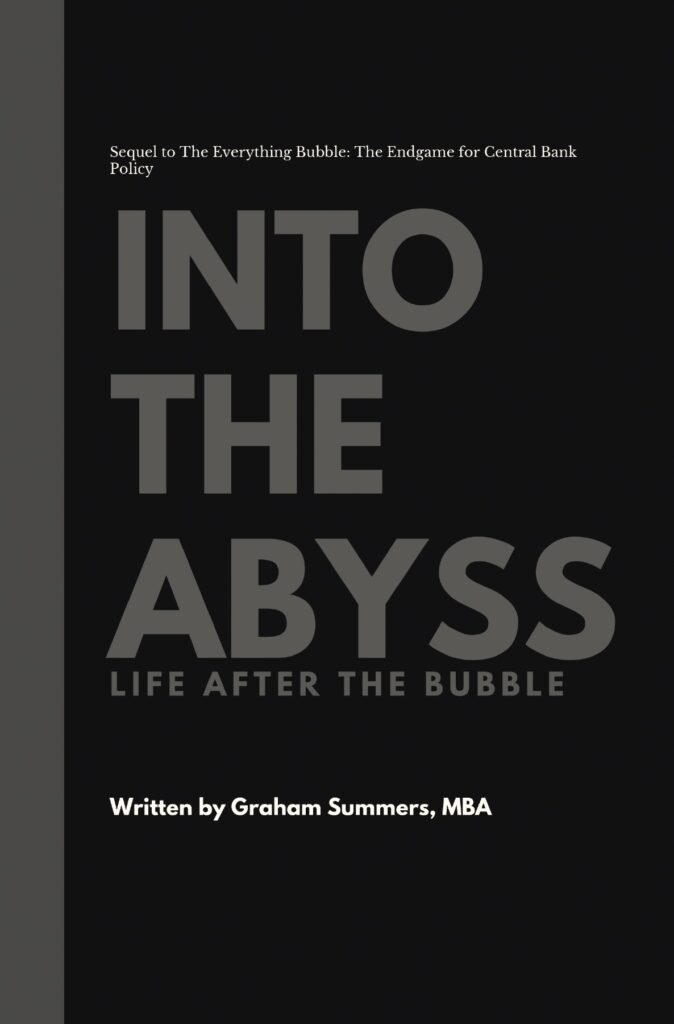The big fat Greek lie being spread throughout the financial community is that Greece has been saved. It’s a lie for the following reasons:
1) Greece did in fact default
2) Greece now has more debt than it did before the bailout (how does writing off €100 billion Euros in debt and taking on €130 billion Euros in more debt improve this situation?)
3) The Greek economy continues to implode (youth unemployment over 50%, one in ten Greek youth looking for jobs abroad, Greek GDP fell 7% in 4Q11)
4) This Second Bailout was indeed a “Credit event” which the markets have yet to discount (though German investors are already lining up litigation)
5) Germany’s finance minister has already admitted Greece may need a third bailout.
Anyone who thinks that Greece is better off, let alone “saved” is out of their minds. The Euro may have been saved for a few more weeks/ months. But Greece is in worse shape than ever.
Indeed, if anything, the Greek situation has made it clear that the whole “give up fiscal sovereignty and implement austerity measures in exchange for bailouts” formula is a waste of time and money. Let’s take a look at the progression here.
1) Greece claims it doesn’t need a bailout at all (January 2010-March 2010)
2) Greece begins to ask for a bailout (April-May 2010)
3) Greece gets a bailout equal to 57% of its GDP (May 2010)
4) Greece posts a GDP of -4% in 2010
5) Greece announces it won’t be able to meet budget requirements/ payback the first bailout on time and asks for an extension (January-February 2011)
6) Greece asks for another extension (May 2011)
7) Talk of Second Greek Bailout begins (July –October 2011)
8) Greece posts a GDP of -6.5% in 2011
9) Second Greek bailout announced/ finalized (February/March 2012)
10) Talk of third Greek bailout begins (March 2012)
No other EU country could look at this progression and think “this looks like a good approach.” Indeed, Spain and Italy must be watching what’s happening in Greece and asking themselves whether they want to go through this whole process of negotiating for bailouts via austerity measures.
Both countries have already had a small sampling of the austerity measure medicine. Spain recently implemented a meager 19€ billion in austerity measures while Italy passed 30€ billion in austerity measures in 2011… hardly a drop out of their respective 1.06€ trillion and 1.5€ trillion economies.
Yet, even these tiny moves resulted in protests and riots. One can only imagine what Spanish and Italian politicians are thinking as they witness the widespread civil unrest, country-wide strikes, and economic depression that have occurred in Greece as a result of that country’s full commitment to the EU’s austerity measure demands.
Spain’s official Debt to GDP is only 64%, but its private sector debt is at an astounding 227% of GDP. And the Spanish banking system is leveraged at 19 to 1 (worse than Greece).
Moreover, the country is already experiencing an economic Crisis with an unemployment rate of 20+% and an economy that has been contracting since mid-2011 (in fact Spain’s GDP just actually went negative in the first quarter of 2012)…
Indeed, Spain’s recent efforts to tell the EU to “shove it” have put a crack in the Eurogroup power over individual EU members that can quickly widen.
Spain’s sovereign thunderclap and the end of Merkel’s Europe
As many readers will already have seen, Premier Mariano Rajoy has refused point blank to comply with the austerity demands of the European Commission and the European Council (hijacked by Merkozy).
Taking what he called a “sovereign decision”, he simply announced that he intends to ignore the EU deficit target of 4.4pc of GDP for this year, setting his own target of 5.8pc instead (down from 8.5pc in 2011).
In the twenty years or so that I have been following EU affairs closely, I cannot remember such a bold and open act of defiance by any state. Usually such matters are fudged. Countries stretch the line, but do not actually cross it.
With condign symbolism, Mr Rajoy dropped his bombshell in Brussels after the EU summit, without first notifying the commission or fellow EU leaders. Indeed, he seemed to relish the fact that he was tearing up the rule book and disavowing the whole EU machinery of budgetary control.
The EU rejected this (of course) and Spain has since agreed to meet softer budgetary requirements. But it’s clear that a shift has begun in how EU members will deal with the Eurogroup as a whole.
So… we must consider that it is highly likely the option of simply defaulting is being discussed at the highest levels of the Spanish and Italian government. Should either country decide that austerity measures don’t work and it’s simply easier to opt for a default, then we are heading into a Crisis that will make 2008 look like a joke.
On that note, if you’re looking for actionable investment strategies on how to play these themes in the markets I suggest checking out my Private Wealth Advisory newsletter.
Private Wealth Advisory is my bi-weekly investment advisory published to my private clients. In it I outline what’s going on “behind the scenes” in the markets as well as which investments are aimed to perform best in the future.
My research has been featured in RollingStone, The New York Post, CNN Money, the Glenn Beck Show, and more. And my clients include analysts and strategists at many of the largest financial firms in the world.
To learn more about Private Wealth Advisory… and how it can help you navigate the markets successfully…
Graham Summers
Chief Market Strategist
Phoenix Capital Research




